Nothing has turned the concept of private property on its head in recent times as much as the COVID-19 pandemic. With over 195,000 people in the UK estimated to have been infected by the virus at the time of writing (6th May 2020), the rising number of infections and fatalities has required a serious rethink of how idle property should be used during a crisis.
As millions of British people self-isolate and confine themselves to the four walls of their own homes and key workers continue to keep essential services operating, the demand for hospital beds and mortuary space is a pertinent issue.
Property Notify has investigated how COVID-19 has blurred the line between public and private property, and how elements from our wartime past come back to serve a purpose in these difficult times.
NHS Nightingale, ready for duty
One of the most significant stories to come out of the property markets during the COVID-19 pandemic was the requisition of London’s ExCel Centre. Known as a high-capacity venue which hosts events attracting thousands each year, this venue has now been converted into a state-of-the-art medical facility, christened NHS Nightingale London.
Barely a month after it opened its doors, NHS Nightingale London was revealed as having been put on standby, no longer admitting new patients. Before this development came to pass, Property Notify investigated how the facility came into being.
Vanessa Challess is a senior partner at legal firm Tiger Law, who recently wrote at great length about the impact of COVID-19 on commercial landlords.
Speaking to Property Notify about the ExCel Centre, Mrs Challess explained: “The MOD and NHS have worked together to turn the privately-owned ExCel Centre into the Nightingale hospital, incorporating thousands of beds, intended to deal with the more serious COVID-19 cases.”
Owned by the Abu Dhabi National Exhibitions Company (ADNEC), the Centre was used as the venue for the UK to host the 2009 G20 summit. In 2018, the Centre was reported to have been making profits as high as £31.1 million during the 2017 calendar year. Despite a stellar performance in 2017, profits were estimated to have fallen to £29.9 million in 2018, owing to an absence of certain biennial events.
The COVID-19 pandemic has highlighted the potential to turn the ExCel Centre into the ideal venue for a medical facility within central London. It’s being provided to the NHS at a negligible cost. Being requisitioned is likely to make little impact on the venue’s income, given that its closure was assured when lockdown began, and large gatherings have been strongly discouraged.
Nightingale is not just a London phenomenon – venues such as the Harrogate Convention Centre and the Manchester Central Convention Centre have been requisitioned to be converted into NHS Nightingale Yorkshire & Humber and NHS Nightingale North West respectively.
The former is set to house over 500 patients and the latter has capacity for up to 750 people. The facilities have been running a solid recruitment drive to find willing applicants who wish to work for them during the pandemic, with the Yorkshire & Humber facility having to close their jobs portal at one point, due to such a high volume of applications.
Financial arrangements in-depth
But what could the potential commercial impact be? NHS Nightingale London is understood to have been offered to the NHS rent-free, but reports suggested that the NHS was originally set to pay a contribution towards some fixed costs. Controversy briefly erupted, when a Sunday Times exposé suggested the venue was allegedly charging the NHS between £2-3 million for its use.
Jeremy Rees, chief executive of the ExCel Centre, later clarified that there had been a change in approach, with the Centre stepping in to cover these fixed costs entirely by themselves, and ADNEC clarified that generating profit was the least of their concerns.
During a time of national crisis, this suggests a prevailing attitude of forgoing monetary gain by private property owners as part of some common good, for as long as necessary, while COVID-19 remains a pressing threat to the health of British citizens.
As previously mentioned, NHS Nightingale London is now on standby, but this doesn’t mean it is completely out of action. It is simply waiting in the wings, in the event that it’s still required, if the UK experiences a resurgence in cases of COVID-19.
Property Notify has reached out to the NHS Nightingale facilities in London, Yorkshire & Humber and Manchester, to clarify how long they can expect to be in operation for. No response has been received so far, but we welcome any relevant parties to get in touch, if they have insights into the timetable for these hospitals.
Approach to COVID-19 assessed
The lockdown has been felt keenly by landlords and tenants of commercial properties, who all face their own individual challenges. Properties such as the ExCel Centre were expected to be generating a high volume of revenue at this time of year. In the case of this venue, its owners are able to put it to good use at negligible cost. The average business in the UK, which typically operated out of a rented office space is less likely to be so fortunate.
On a smaller scale, businesses across the UK are struggling to make ends meet, with rental bills to pay on office space and other commercial properties. Some have been forced to place entire workforces on furlough or make redundancies, as cashflow diminishes, but these rental costs continue to stand.
Working remotely helps keep the business engines turning and ultimately ensure the economy doesn’t grind to a complete halt. Even so, outgoings for now vacant office space will be one of the prime concerns for businesses, and this shows little signs of abating anytime soon.
Mrs Challess added some insights of her own: “Commercial landlords cannot forfeit leases (take possession) during this period, although that is not to say that they have entirely waived their rights. Rather, they have been delayed, and rent will be payable. I’ve spoken to a number of directors who personally guaranteed their companies’ leases, who were in the most stressful limbo imaginable.”
In doing so, Mrs Challess revealed that this put directors at risk of being potentially personally liable for the rent for premises which remain effectively idle, but added that Government guidance would come as very welcome relief to these individuals.
Reflecting on the fact that one of the country’s most profitable events venues has been requisitioned and provided to the NHS rent-free in the short space of a few weeks, Mrs Challess concluded: “I would hope that the legacy left by COVID-19 is more one of preparation and prevention rather than failing to deal with an epidemic early enough and being compelled to treat the disease, once it has already taken grip.
“One would hope that the owners of empty buildings would be willing to turn them over but the factual matrix currently in place is hopefully one that we never ever see again.”
For commercial property landlords, of course, there is the additional safety question. From the ExCel Centre’s perspective, the nature of the virus and the established cleaning protocols from the NHS should be enough to take care of this. COVID-19 is understood to be caused by a virus which can survive no longer than 72 hours on a hard surface and just one hour on soft ones.
This means that, once the pandemic is over, the removal of stud walling and partitioning installed at the ExCel Centre, along with removal of contaminated NHS equipment such as PPE, followed up by a deep clean would be sufficient, to ensure that any remnants of the virus no longer pose a risk to human health.
For other commercial landlords, a deep clean is something that will need to be considered. While responsibility for cleaning a property may depend on the lease, COVID-19 is classed as a biological agent and potential exposure to it must be controlled. Landlords have a legal duty to ensure that occupants of their properties are not exposed to risks to health, which would include diseases such as COVID-19.
As a result, landlords may be expected to carry out at least some form of deep cleaning as per their legal responsibilities for health and safety. This could potentially be undertaken in communal areas, which are easier to access, and could be essential, as such places could be hotspots where infections are most likely to be transmitted in a property.
Disused military facilities on standby
Not only is private property expected to play a role in this pandemic. Property which has been in the domain of the public sector is now being utilised with great efficiency, showing how a national emergency is really a case of all hands on deck. Idle public properties are the main target here. They are now indispensable, as policy makers prepare for the worst.
If a sudden surge in cases ultimately overwhelms current capacity for beds in hospitals, ICUs and ventilators, an unfortunate rise in mortality will follow. Facilities such as Heyford Park are on standby to serve as temporary mortuaries, away from populated areas.
Heyford Park is the site of a former US Air Force base as well as RAF Upper Heyford. On that site, two hangars have been allocated for conversion into makeshift facilities to serve as mortuaries for the remains of as many as 5,400 people, in the event of a spike in deaths due to COVID-19.
This precautionary measure comes after reports that a Cheshire-based ice rink was pencilled in as a potential venue to be used as a mortuary, if additional space is required. It is important to note that these places are being considered for such use only if there is evidence to suggest that the virus is leading to higher-than-expected levels of mortality.
It goes to show that no stone is being left unturned, in the search for suitable places both privately and publicly-owned, where people can treat those who are sick, and where people can be given a temporary place of rest, if the deaths continue to rise.
On Monday 20th April, Simon Clarke MP, a local government minister, highlighted a new spending package worth £1.6 billion, to help local authorities cope with the pandemic. He included the pledge of ensuring that there would be 30,000 additional temporary mortuary places, in places such as Birmingham Airport.
At present, there are estimated to have been more than 29,000 deaths in the UK, caused by COVID-19, based on deaths in hospitals and care homes. However, an investigative report by the Financial Times suggests that the death toll could be closer to 40,000 or more, having analysed raw excess mortality data provided by the Office for National Statistics.
If the figures are to be believed, the UK currently has the highest death toll from COVID-19 of any European country, at the time of writing.
The COVID-19 pandemic poses a great logistical logjam for many commercial landlords and tenants, as a fully-functioning property market works on the assumption that properties are occupied and put to good use by a sizable number of tenants or occupants, who help generate sufficient levels of rental income.
In ordinary times, this is a system that works relatively smoothly. There is occasional Government tinkering around the edges, with taxes and other instruments here and there, to limit the risk of imbalances and excessive speculation. But when the economy takes a sudden hit, properties become vacant and rental income dries up. Will the Government sit idly by, or will it put them to good use, and help provide financial support to those who need it, for as long as required?
One of the changes we may see as a result of the pandemic is a shift in appetite from commercial property investors. Risk parameters will be amended, to account for sudden loss of income, and big purchases may get kicked into the long grass. Having a sizable rental income is all very well when times are good, but many could be less willing to take the risk of investing in properties similar to the ExCel Centre, for example, if the property ends up idle or in public hands for a lengthy period of time.
In addition, businesses may seek to find ways to insulate themselves, to minimise the chances of finding themselves unable to access rented office space, while bills continue to mount. The current lockdown could actually serve as the catalyst for a seismic shift that has been taking place for a number of years already. The working-from-home revolution going on behind closed doors could see more of us working closer to home than ever before, with less reliance on large-scale office environments, when the dust finally settles.



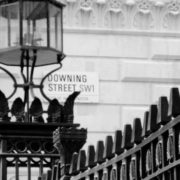
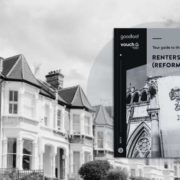



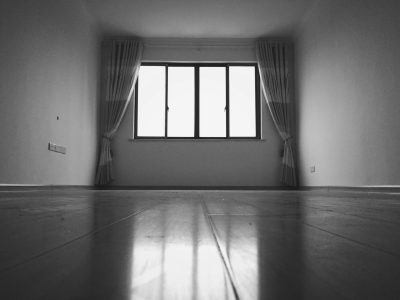

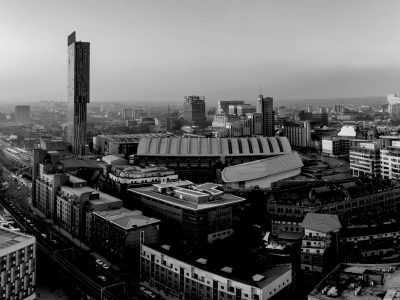

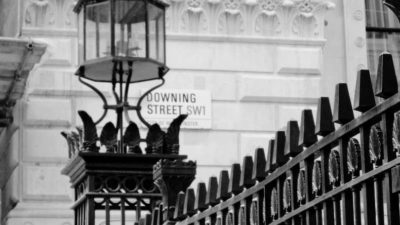
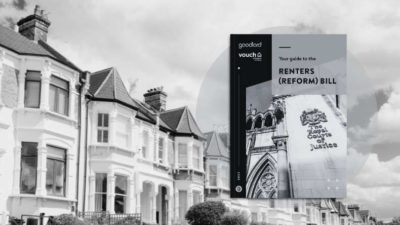







Comments